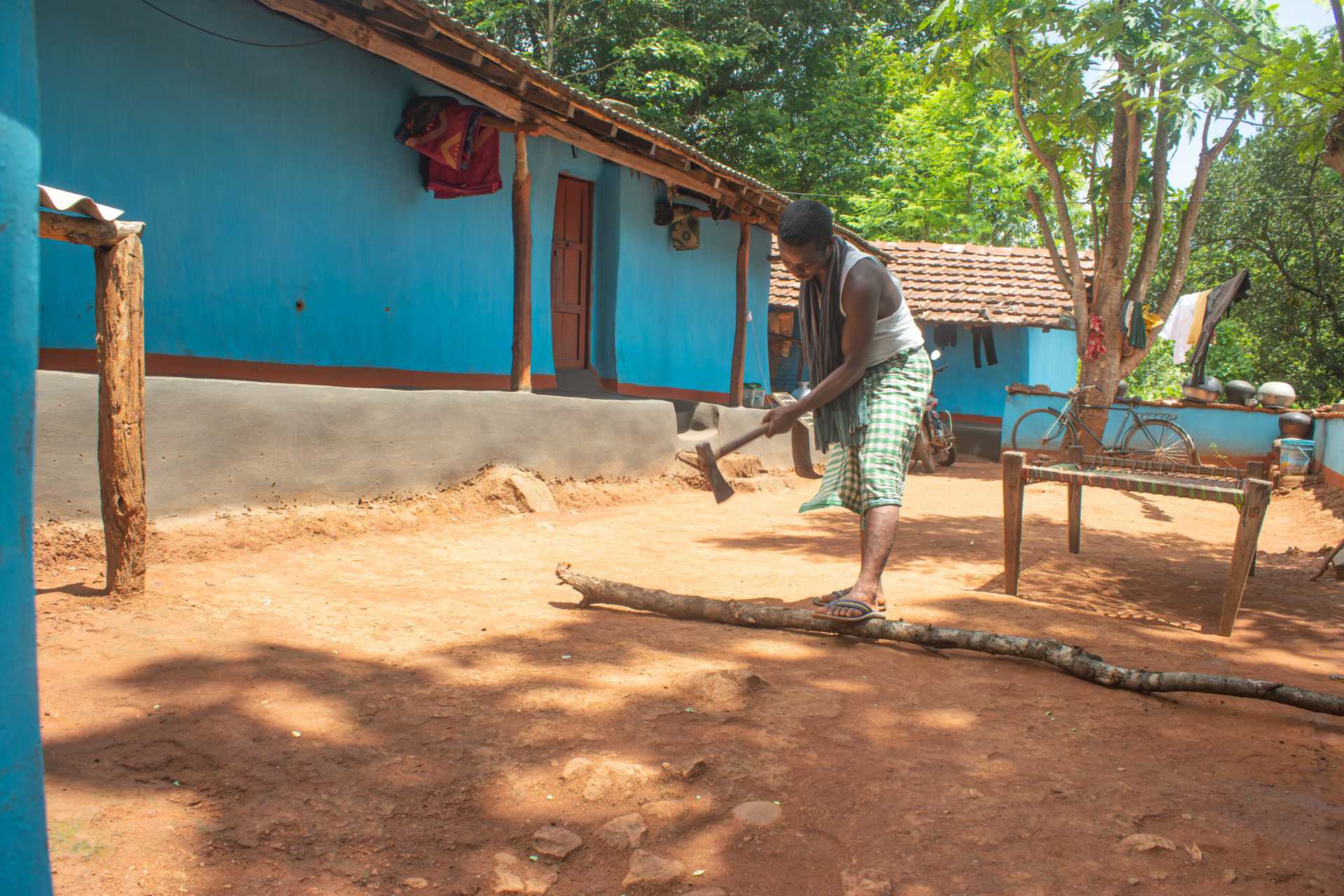Within the vast expanse of Odisha’s 47,000 villages across 30 districts lies a sombre truth that persists even after 76 years of India’s independence. Some villages remain ensnared in the shadows, far removed from the comforting embrace of progress. In these forgotten places, children yearn for an education that eludes them, technological wonders remain distant mirages, and superstitions, born out of fear and desperation, continue to hold sway.
Gugudhari, nestled in Chamakpur gram panchayat in Joda block of Keonjhar district, stands as one such village. Its isolation is marked by the presence of elephants that frequent its land, leaving an indelible impact on the lives of its inhabitants. Most residents chose to flee, seeking refuge elsewhere, but a few remained, with no viable alternatives. The village’s small population has suffered from an outdated education system, devoid of quality public schools and teachers. Moreover, the absence of medical facilities has led to heartbreaking losses, with pregnant women and infants denied the essential care they desperately need. Within this community, the grim realities of child labour and child marriage persist.
Gugudhari is a place trapped in the clutches of poverty, where survival teeters precariously on the bounty of the surrounding forest. Government initiatives meant to uplift and empower the village remain a well-kept secret, hidden from the weary populace. For far too long, Gugudhari has languished in neglect, untouched by the government schemes designed to bring hope.
In the midst of this bleak landscape emerges Suresh Munda, a young boy who personifies the struggles faced by the community. At the tender age of 12, Suresh’s world unravelled when his mother passed away while he was in seventh grade. Denied proper treatment, her fever turned fatal, plunging Suresh’s father into the solace of alcohol, his sister into the grip of depression, and forcing his elder brother, Tapan Munda, to shoulder the responsibility of providing for the family through work outside the village. Bereft of support, care, and guidance, Suresh found himself alone, wandering the jungle and surviving on wild fruits and tubers. Eventually, he abandoned his education, believing his life had reached an impasse. from work.
Suresh shares, “With the passing of my mother, I not only lost her love and guidance but also my own courage. I made the painful decision to give up on my studies and resign myself to a nomadic existence.”
But amidst the darkness of his circumstances, a glimmer of hope emerged when his brother Tapan stumbled upon NGO Aspire during his own desperate search for employment. Dedicated to providing quality education in remote communities, Aspire soon became a lifeline for the Munda family. Tapan was selected to become an instructor at the Non-Residential Bridge Course (NRBC) centre located in Gugudhari. This specialized centre serves as a curriculum bridge, focusing on reintegrating students who had briefly stepped away from their education back into the academic fold. With this newfound income, Tapan encouraged Suresh to return to school. However, the nearest high school was situated 12 kilometres away, across dense forests frequented by wandering wild elephants. To facilitate Suresh’s journey, Tapan kindly provided him with a bicycle. Suresh diligently pursued his education, and the outcome was remarkable: last year, he successfully passed his matriculation exams with distinction.
Tapan eloquently states, “Our village is extraordinarily remote, untouched by governmental initiatives. It falls upon us, the younger generation, to take the mantle of leadership and carve out a better future for our community.” communities, guiding them towards successful school completion.
Suresh’s struggle is not unique. Many students face similar challenges, forced to abandon their education due to impassable roads and the ever-present fear of encountering wild animals. Parents remain unaware of the procedures to secure admission for their children in government residential schools. Aspire’s NRBC program has become a beacon of hope for these out-of-school children in remote
In 2022, Suresh took on the role of a junior volunteer-teacher in Aspire’s Foundational Literacy and Numeracy (FLN) program at Gugudhari government school. This program aims to bridge the learning gaps among primary-grade students. Suresh’s commitment to this cause is unwavering. He manages this role alongside his job as a night security guard in Sargitalia village, Joda block, which is 21 kilometres from Gugudhari. Post his night shift, Suresh transitions into assisting government primary teachers in teaching the FLN curriculum, covering subjects like math and language. His dedication and passion for teaching haven’t gone unnoticed. The school’s teachers commend his extraordinary dedication to education, noting that his commitment even surpasses that of some higher-paid government employees.
With an unwavering determination to uplift his village and others like it, Suresh aspires to become a teacher and a social worker. He shares, “My life came to a halt after my mother’s death. I felt it was the end, that my life was ruined. But amidst the adversity, a profound transformation occurred. Having completed my intermediate studies, I will continue my education to become a teacher and invest significant time in social work.”
Suresh’s journey stands as a testament to the resilience and unwavering spirit of individuals facing immense challenges. Through his own efforts and the support of organizations like Aspire, he is forging a path toward change, not just in Gugudhari but for marginalized communities everywhere.
